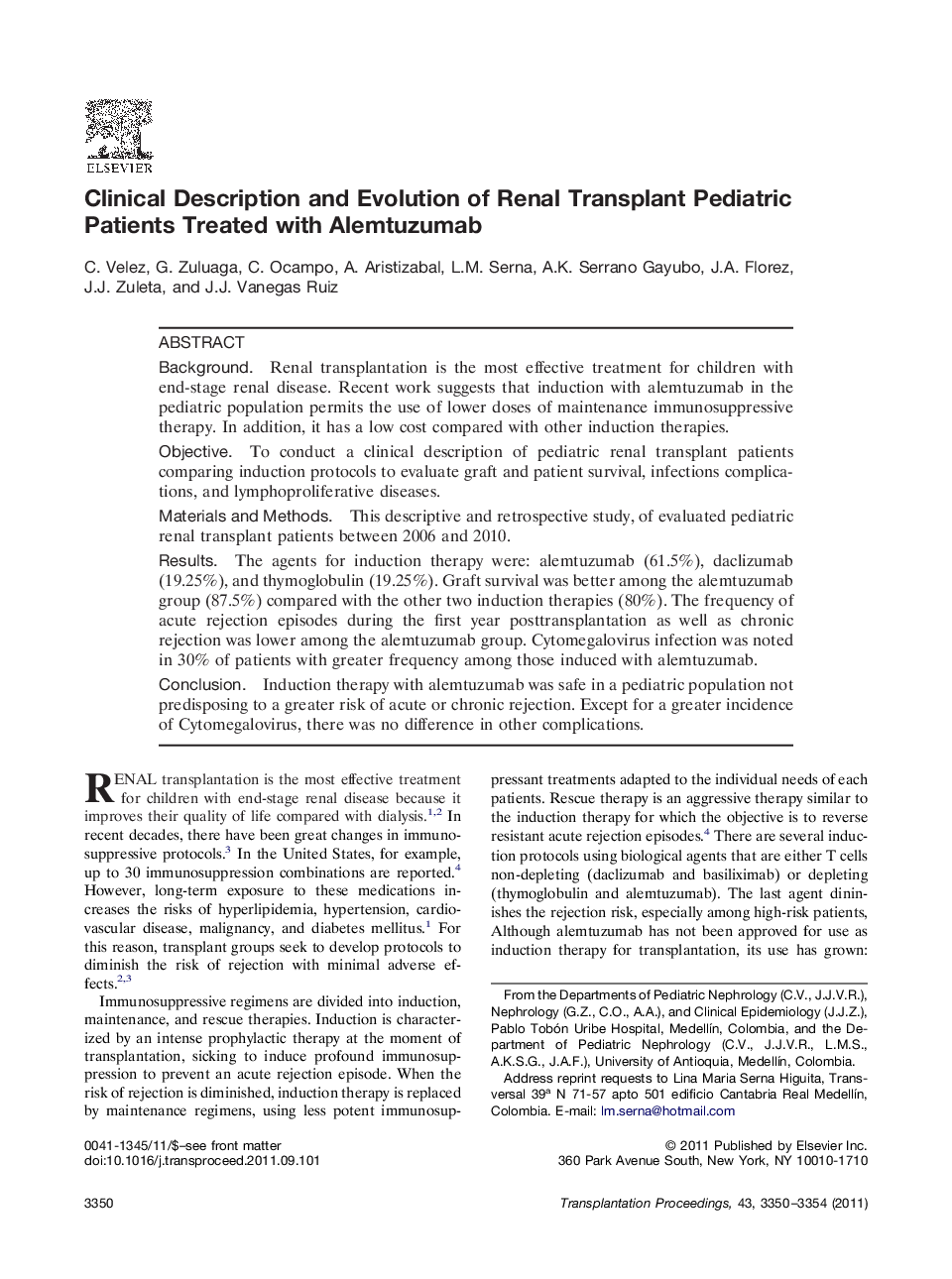| Article ID | Journal | Published Year | Pages | File Type |
|---|---|---|---|---|
| 4258594 | Transplantation Proceedings | 2011 | 5 Pages |
BackgroundRenal transplantation is the most effective treatment for children with end-stage renal disease. Recent work suggests that induction with alemtuzumab in the pediatric population permits the use of lower doses of maintenance immunosuppressive therapy. In addition, it has a low cost compared with other induction therapies.ObjectiveTo conduct a clinical description of pediatric renal transplant patients comparing induction protocols to evaluate graft and patient survival, infections complications, and lymphoproliferative diseases.Materials and MethodsThis descriptive and retrospective study, of evaluated pediatric renal transplant patients between 2006 and 2010.ResultsThe agents for induction therapy were: alemtuzumab (61.5%), daclizumab (19.25%), and thymoglobulin (19.25%). Graft survival was better among the alemtuzumab group (87.5%) compared with the other two induction therapies (80%). The frequency of acute rejection episodes during the first year posttransplantation as well as chronic rejection was lower among the alemtuzumab group. Cytomegalovirus infection was noted in 30% of patients with greater frequency among those induced with alemtuzumab.ConclusionInduction therapy with alemtuzumab was safe in a pediatric population not predisposing to a greater risk of acute or chronic rejection. Except for a greater incidence of Cytomegalovirus, there was no difference in other complications.
